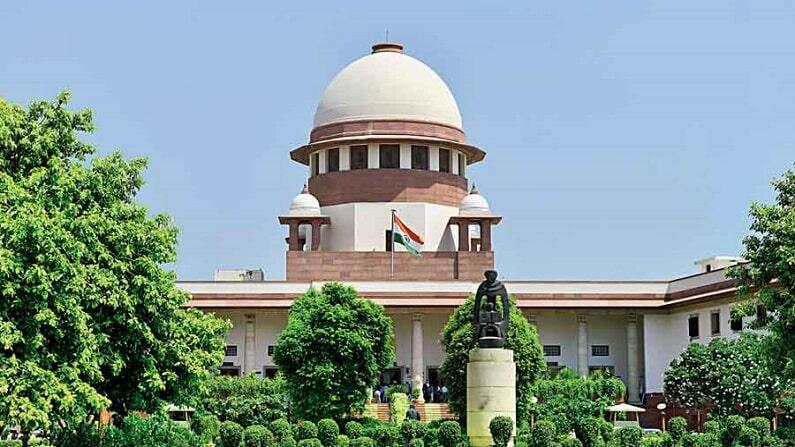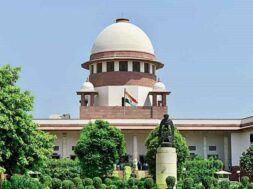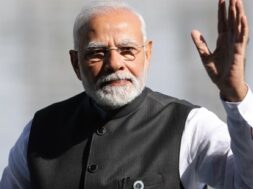
SC Express Shock at Continued Use of Scrapped Provision of IT Act, Asks States/UTs to Co-operate
Manas Dasgupta
NEW DELHI, Aug 2: The Supreme Court has sought the co-operation of all the states and union territories to respond in detail the number of cases still being pending or under trial in their respective areas under section 66A of the Information Technology Act which was struck down by the apex court in March, 2015.
The apex court on Monday issued the order in response to a petition filed by an NGO Peoples Union for Civil Liberties (PUCL) which pointed out that the citizens continue to get booked and prosecuted under Section 66A of the IT Act for expressing themselves freely on social media. Section 66A was declared unconstitutional by the Supreme Court in a judgment in 2015.
A bench of Justices Rohinton F. Nariman and BR Gavai stated that they “will pass comprehensive order so that matter of booking people under scrapped section 66A of IT Act is settled once and for all.”
The petition stated that the scrapped section continued to be in use not only at police stations but also in trial courts across the country, to which, the bench responded, “Judiciary we can take care of separately but police is also there. There needs to be one proper order because this cannot continue.”
The bench said the state governments, which control the police force, had to answer for this violation of the Supreme Court judgment. The Supreme Court said the judiciary could be reined in from wrongly charging under Section 66A, but the cooperation of the States was necessary to put the brakes on the police from registering FIRs under Section 66A. The court said it intended to pass a wholistic order after hearing the States. The court listed the case after four weeks.
On July 5 this year, Justice Nariman had found it “distressing”, “shocking” and “terrible” that people were still booked and tried under Section 66A even six years after the Supreme Court struck down the provision as unconstitutional and a violation of free speech.
The union home ministry said it had written to states asking them not to register cases under the repealed provision and withdraw any such case that may have been filed. “The Union Ministry of Home Affairs (MHA) has requested States and Union Territories (UTs) to direct all police stations under their jurisdiction not to register cases under the repealed Section 66A of the Information Technology Act, 2000. It has also asked the States and UTs to sensitize law enforcement agencies for the compliance of the order issued by the Supreme Court on 24.03.2015,” a statement issued by the MHA said.
The NGO PUCL represented by senior advocate Sanjay Parikh and advocate Aparna Bhat, had drawn the court’s attention to the violations. Justice Nariman had authored the judgment, trashing Section 66A in a petition filed by law student Shreya Singhal, who highlighted cases of young people being arrested and charged under the ambiguous provision for their social media posts.
In its response, the Centre said the police and public order were “State subjects” under the Constitution.
“Prevention, detection, investigation and prosecution of crimes and capacity-building of the police are primarily the responsibility of the States,” the Centre had submitted in an affidavit to the Supreme Court.
It said law enforcement agencies shared equal responsibility to comply with the Supreme Court judgment. They took action against cyber-crime offenders as per the law.
The Centre said the Ministries of Information and Technology and Home Affairs had done their best to disseminate knowledge about the Supreme Court judgment in the Shreya Singhal v. Union of India case that struck down section 66A for “being violative of Article 19(1)(a) and not saved under Article 19(2).”
Section 66A empowered police to make arrests over what policemen, in terms of their subjective discretion, could construe as “offensive” or “menacing” or for the purposes of causing annoyance, inconvenience, etc.
Section 66A had prescribed three years’ imprisonment if a social media message caused “annoyance” or was found “grossly offensive.” The Supreme Court had concluded the provision to be vague and worded arbitrarily. Justice Nariman had agreed with the petitioner Parikh on July 7 that the “state of affairs is shocking.”
Parikh had urged the court to intervene and work out a mechanism to disseminate the Shreya Singhal judgment to every police station and trial court in the country.
“Section 66A of the IT Act has continued to be in use not only within police stations but also in cases before trial courts across India. This information was available on a website — Zombie Tracker website — developed by a team of independent researchers… The findings of the website reveal that as on March 10, 2021, as many as a total of 745 cases are still pending and active before the Districts Courts in 11 States, wherein accused persons are being prosecuted for offences under Section 66A of the IT Act,” the PUCL has submitted.
The NGO has urged the Supreme Court to direct the government, through the National Crime Records Bureau or any other agency, to collect all the data/information regarding FIRs/investigations under Section 66A and pending cases in the District and High Courts.













